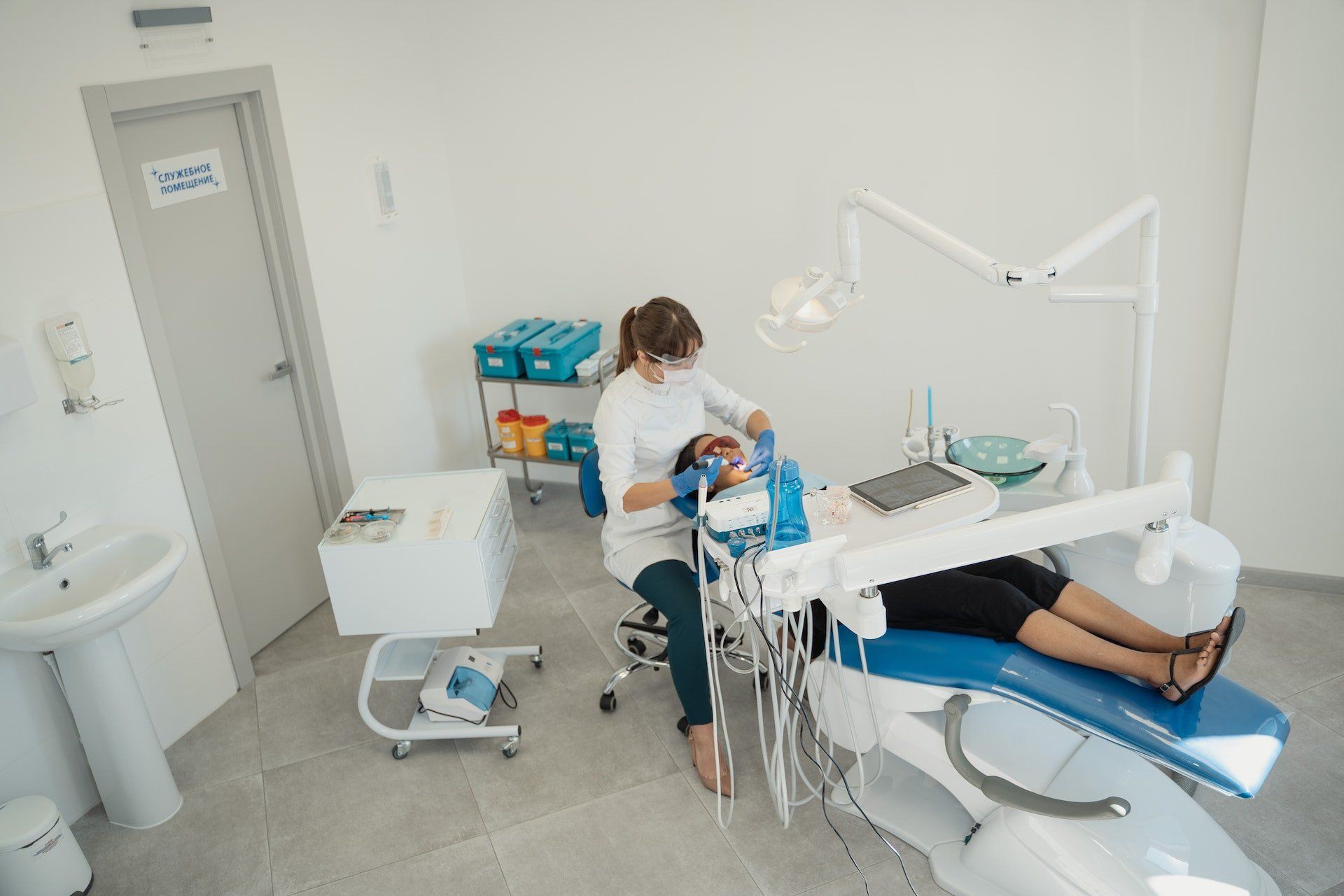Symptoms of TMD to Look Out For

Age and gender are the two largest risk factors for the temporomandibular joint disorder.
According to the National Library of Medicine, adults between ages 4564 are at the highest risk of developing this joint disorder, while women disproportionately experience jaw tenderness and other common symptoms of TMJ.
Do you wake up with jaw discomfort? Some symptoms of TMJ disorder may seem obvious, but there are many subtle signs of problems with joints that support the lower jaw. Read on to learn what symptoms your dentist in Burke VA, TMD says you should know about.
Tenderness of Your Jaw
Misalignment of the jaw can lead to nighttime teeth grinding. This condition is also known as bruxism. The muscle contractions can leave your jaw muscles feeling fatigued or sore the next day.
Sore or tender jaws may be particularly noticeable in the mornings. Tender jaw muscles may be noticeable when eating as well. If you have persistent discomfort in your jaw or supporting muscles, contact our dental team today.
Pain in One or Both Temporomandibular Joints
The temporomandibular joints are sensitive. To function properly, the network of bone, muscle, and connective tissue must work in harmony. Any disruption to this intricate network could result in one or both joints becoming inflamed.
Jaw pain is a common symptom of TMJ disorder and should be taken seriously, especially if the discomfort does not subside.
Ear Aches
Ear aches are a lesser-known but common symptom of this disorder. Pain can arise in areas near the TMJs. Ear aches are a common symptom due to the proximity of the jaw joints and the inner ear.
Difficulty Chewing
The TMJs work as sliding hindges. TMJ disorder can disrupt the sensitive movements that allow for chewing.
Individuals with TMJ disorder may experience main or discomfort while chewing. This can be especially true for tough or chewy foods that place pressure on the jaw joints. After eating, you may feel like the discomfort lingers.
Facial Pain
Pain from TMJ disorder can radiate to nearby structures of the face, head, and neck. Some people with this degenerative disorder experience facial pain. If you feel discomfort on your face and cannot think of a possible cause, it may be time to let our dentist examine your jaws for signs of TMJ disorder.
Difficulty Opening Jaw
Opening the jaws can be difficult and even painful for individuals who suffer from TMJ disorder, which is also known as TMD. Jaw pain may be most noticeable when the jaws are fully open. This symptom can make speaking and chewing difficult.
Locking of the Joint
Experiencing a locked jaw can be distressing. Some patients may have difficulty opening their jaw while others feel like their jaw locks open, which can make closing the jaw uncomfortable.
Early treatment of TMJ symptoms can prevent this undesirable symptom from arising.
Jaw Clicking
Along with possibly locking, jaws that are overstressed can develop a clicking sound of feeling. This results from the jaw hinge not properly aligning. It can also result from work cartilage.
Some individuals may experience jaw clicking due to purely genetic reasons, but it is always a symptom worth having examined by a trained professional.
Neck or Back Aches
The proximity of the jaws to the neck and upper back can leave TMJ disorder patients experiencing neck and back muscle pain and discomfort. Some of these symptoms arise at night as the jaw muscles clench.
By addressing misaligned jaw bones, our esteemed dentist can reduce or eliminate these body aches. Misaligned jaws often result from dental malocclusion. By taking steps to correct misaligned teeth, our dentist can correct the causes of neck and back pain that results from TMJ disorder.
Headaches
There are several ways that TMJ disorder can cause headaches. If stress is the underlying cause of your nighttime teeth grinding, the stress may also cause headaches. The tension that results from clenched jaw muscles can directly lead to headaches.
Headaches and migraines frequently result from anything that throws your body off. If you are experiencing frequent occurrences of headaches and do not know why our dentist can perform a simple test to determine if jaw misalignment is behind your reoccurring headaches and migraines before prescribing non-invasive treatment options.
When Should I See a Doctor?
You may be wondering if TMJ symptoms will ever just go away on their own. For adults who overly exerted their jaws or experienced a mild injury, the symptoms may subside. TMJ symptoms that develop over a long period require professional treatment.
If your symptoms are persistent and make life difficult, do not ignore signs that your jaws may be affected by this serious degenerative disease. Around 95% of TMJ pain arises from issues with the muscles. Dr. Lynch will examine your bite using a technique called electromyography.
The electronic diagnostic technique uses a delicate instrument to precisely evaluate and record muscle activity. Using data from that examination, Dr. Lynch can develop a treatment plan to reduce grinding and clenching. The treatments can even improve sleep.
Schedule Your Dentist in Burke, VA, TMD Visit Today
Don't put off addressing symptoms of TMJ. The temporomandibular joint disorder is a degenerative condition, meaning symptoms will likely worsen over time. Without property treatment, surgical intervention may even be needed.
Your dentist in Burke VA, TMD can address the underlying causes of TMJ without the need for surgery.
Contact our office today to schedule your next visit.












